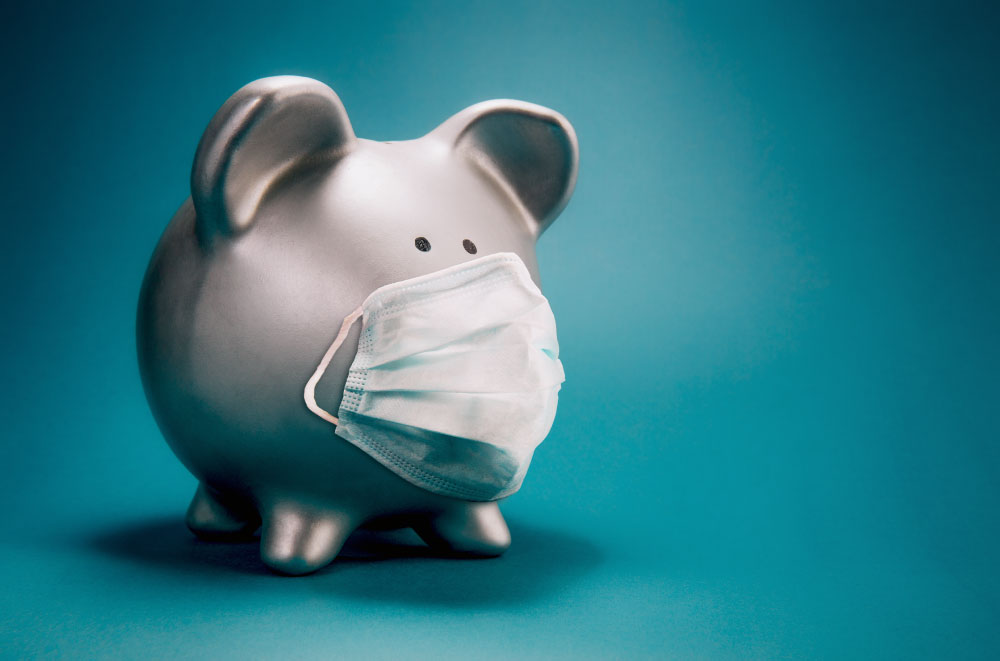
For years, I have campaigned against debt. I have always considered it the biggest enemy to wealth and I still do, but with a caveat. There is still no question that paying down credit card and unsecured debt is almost always the best use of extra cash, but with mortgage interest rates hovering around 3%, the same does not apply to mortgage debt. Having a nice place to live is critically important to all of us and owning your home free and clear is a good thing for your piece of mind, but the COVID-19 crisis has taught us that having a substantial savings account is equally important. At this moment, I think most people would rather have $100,000 in savings and a $100,000 mortgage at 3% than a free and clear home with no savings. The insecurity of the economy is causing almost as much stress in people as the fear of the virus itself. Home equity is great but not the easiest thing to tap into if you’re in a financial jam. If you lose your job, nobody will give you a mortgage loan no matter how much equity you have, unless you’re willing to pay exorbitant rates and fees. If I had to put it in a formula, I would say make sure you have 12 months of your monthly expenses in savings before you use any excess cash to pay down mortgage debt. Debt is bad, but not having a savings is even worse.
The importance of multiple revenue streams has also been magnified during the COVID-19 crisis. No job is totally secure and no investment is guaranteed. Those who have studied business have always known the importance of passive income such as dividend stocks and rental properties, but COVID-19 has also challenged us in ways we never anticipated. The government estimates that 40% of renters will not be able to pay their rent this month. Literally nobody thought this would ever happen. COVID-19 has created an incredibly bad situation for renters and small landlords, who need the rent income to pay their mortgages and/or their living expenses. Commercial landlords may be having it even tougher. The importance of having multiple revenue streams has never been more evident. Even rental income is not guaranteed. Creating a steady flow of passive income is not easy. It takes time and usually some investment but there are lots of good books on the subject and now might be a good time to start reading a couple of them.
What if Donald Trump’s greatest strength is something the rest of us refuse to acknowledge? In this thought-provoking episode, Gary Acosta explores what liberals, global leaders, and entrepreneurs might learn from Trump’s approach to leadership. From mastering direct communication to shaping loyalty through perceived authenticity, Gary dives into the mechanics of modern influence—even when the messenger is flawed. Whether you agree or disagree with Trump, the lessons here reveal surprising truths about power, persuasion, and strategy in today’s world.
What do people really mean when they say, “DEI is destroying our country”? In this powerful episode, Gary Acosta takes on the backlash against Diversity, Equity, and Inclusion—and asks whether it’s become a coded way to express racism. He breaks down myths about lowered standards, exposes the hypocrisy behind legacy admissions, and challenges the silence around nepotism and privilege. DEI may be a polarizing term today, but Gary argues that its core values remain essential to capitalism, innovation, and fairness in America’s future.
The Latino brand impacts every aspect of our lives—from how we're viewed in business and media to the opportunities we’re given. In this first episode, Gary Acosta explores why a unified, empowered narrative is essential for Latino prosperity. Learn what Gary shared at the United Nations, how he raised $100M for Latino-led ventures, and why changing the perception of our community is the key to unlocking capital, influence, and success.

